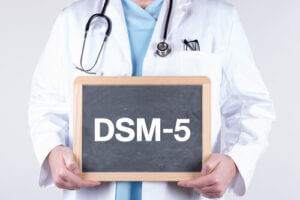Cocaine Addiction: Effects, Withdrawal, & Treatment
 Cocaine is a stimulant drug made from the leaves of the coca plant that can be found in South America.2 To make cocaine, these leaves are highly refined and mixed with other chemicals to create the finely powdered substance that is cocaine.3
Cocaine is a stimulant drug made from the leaves of the coca plant that can be found in South America.2 To make cocaine, these leaves are highly refined and mixed with other chemicals to create the finely powdered substance that is cocaine.3
Cocaine was formerly used as an anesthetic in medical settings, but currently, it is used mostly as an illegal street drug.2 People use cocaine by:2
- Snorting it (insufflation).
- Rubbing it on their gums.
- Dissolving it in liquid and injecting it.
It can also be processed into a rock crystal that is then smoked to elicit an intense high. This version of cocaine is called “crack” for the crackling sound the drug makes when heat is applied.2
Stimulants like cocaine accelerate the central nervous system, causing alertness and euphoria as the desired effects; however, cocaine can also cause serious health problems, including fatal cocaine overdose.4
Is Cocaine Addictive?
Cocaine has a high potential for addiction. Cocaine use elicits a powerful, but short-lived high that may make people want to repeat the experience despite drug use causing problems to their health, relationships, and finances.3
Cocaine gives people who take it an intense and rapid “rush” of euphoria, which quickly fades. The fleeting nature of this rush may lead people to attempt to recapture this feeling over and over. Routes that facilitate more rapid delivery of the drug to the brain, such as smoking crack or injecting cocaine, are more strongly linked to addiction and the severity of addiction.5
Cocaine addiction, like addiction to many substances, partly involves effects of the drug on the brain’s reward system.2 Cocaine blocks the reuptake of dopamine—a brain chemical vital to reward and motivation—leaving excessive levels that not only result in euphoria but also strongly reinforces the use of cocaine.2
Regular use of cocaine can result in physiological dependency, meaning someone will experience withdrawal symptoms when they reduce their use of cocaine or quit taking cocaine altogether. Many people respond to withdrawal symptoms by using more cocaine.3 Withdrawal symptoms is an indicator of stimulant addiction, however, a person must meet additional criteria to be diagnosed with a substance use disorder.7
Over time, chronic cocaine use can cause lasting changes to behavior and brain structure and function.2,6,8,9 Researchers suspect that this is why some people relapse after being sober for years.9
Not all people that use cocaine or other substances of use will become addicted. There is no way to tell who will develop a substance use disorder (SUD) during their lifetime;5 however, there are some strong predictors that have been identified through many years of scientific research. Risk factors for developing SUD include:5,10
- Genetics. Researchers believe that someone’s family history accounts for at least 50% of their propensity for addiction.
- Environment. Experiencing stressful situations or trauma, especially during childhood, raises someone’s risk of developing an SUD.
- Alcohol or drug use at a young age. People that use substances recreationally in their developmental years are more likely to develop a problem later on.
Acute pharmacological effects of cocaine can indicate someone is under the influence of cocaine. These effects can include:2
- Increased energy and alertness.
- Hypersensitivity to sight, sound, and touch.
- Dilated pupils.
- Raised body temperature and blood pressure.
- Fast heartbeat.
- Restlessness.
- Muscle twitching and tremors.
- Irritability.
- Paranoia.
- Nausea.
The effects of cocaine, as well as cocaine’s overdose potential, are dose related. As the dose increases, so does the intensity of cocaine’s effect and the length of time cocaine is in your system: mild excitement becomes a more intense reaction. And as the dose increases (and/or the frequency between doses reduced), cardiovascular effects of cocaine can get more intense, increasing the risk of overdose, which often manifests from cardiovascular effects of cocaine and can result in:2
- Arrhythmias (irregular heartbeat).
- Severe hypertension (high blood pressure).
- Heart attack.
- Sudden death.
Additionally, cocaine is often cut with adulterants unbeknownst to the person using it; some of these common adulterants—particularly synthetic opioids like fentanyl—carry an extremely high risk of overdose.11 In 2020, approximately 20,000 people in the U.S. died from a cocaine-related overdose. Nearly three quarters of these fatal overdoses involved fentanyl.12
Signs of Cocaine Addiction
 Regular cocaine use can lead to the development of a stimulant use disorder a mental health disorder that can indicate stimulant addiction.2,7 The diagnosis of any substance use disorder is made by a medical professional using the criteria outlined in the Diagnostic and Statistical Manual of Mental Disorders (DSM-5). These criteria include:7
Regular cocaine use can lead to the development of a stimulant use disorder a mental health disorder that can indicate stimulant addiction.2,7 The diagnosis of any substance use disorder is made by a medical professional using the criteria outlined in the Diagnostic and Statistical Manual of Mental Disorders (DSM-5). These criteria include:7
- Using stimulants like cocaine in situations where it is dangerous to do so, such as driving.
- Using more cocaine or using cocaine (or other stimulants) over longer periods than intended.
- Continuing to use stimulants despite the knowledge it has caused or worsened a mental or physical health problem.
- Cocaine or other stimulant use hindering the ability to meet obligations for work, school, or family.
- Skipping important career, familial, social, or recreational events to use cocaine or other stimulants, seek them, or recover from their use.
- Craving cocaine or other stimulants.
- Expressing the desire or making attempts to quit or reduce cocaine and other stimulant use but not following through.
- Cocaine or other stimulant use causing social or interpersonal conflicts.
- Spending lots of time using cocaine or other stimulants or engaging in activities to obtain stimulants.
- Using stronger or more frequent doses of cocaine or other stimulants to produce the same desired effect (i.e., the body has developed a tolerance to cocaine use).
- Experiencing withdrawal symptoms when not using cocaine or other stimulants or after cutting back.
Exhibiting at least 2 of the above criteria within a 12-month period would result in a positive diagnosis of a stimulant use disorder. The more criteria a person meets, the more severe their stimulant us disorder and the likelihood of addiction.7
What Are the Long-Term Effects of Cocaine?
There are several long-term health effects of cocaine that are associated with cocaine use that can become problematic over time, including addiction. Some of these long-term effects of cocaine use include:2
- Malnourishment due to decreased appetite and consuming less food.
- Movement disorders such as Parkinson’s (after many years of use).
- Ongoing irritability and restlessness from cocaine binges.
- Severe paranoia and auditory hallucinations.
- Increased risk of sexually transmitted diseases, due to risky behavior resulting from impaired judgement.
Also, certain health risks are assocated with specific routes of administration. These effects can include:2
- Loss of smell, nosebleeds, runny nose, and swallowing issues, caused by snorting cocaine.
- Cough, asthma, respiratory distress, and a higher risk of respiratory infections, caused by smoking cocaine.
- Bowel decay from reduced blood flow in the digestive tract, caused by taking cocaine orally.
- Higher risk for contracting HIV or hepatitis C, and other bloodborne infectious diseases, skin or soft tissue infections, and scarred or collapsed veins, which can be caused by injecting cocaine.
Physiological dependence to cocaine happens when the brain and body have adapted to the regular presence of cocaine. When someone who has a physiological dependence on cocaine stops use or decreases their cocaine intake, the brain and body experience withdrawal symptoms as they readjust. 13,14
Cocaine withdrawal symptoms occur within a few hours after stopping regular use of the drug and usually lasts for a few days. Certain symptoms, including depression and anhedonia (i.e., inability to feel pleasure) can persist for several weeks.13,14 There are many factors that can influence the duration and severity of cocaine withdrawal, and those include:13,14,15
- The concurrent use of other substances (i.e., polysubstance use).
- The patient’s physical and mental health.
- The amount of cocaine taken and how often it was being taken.
- The overall length of time a person has used cocaine.
- The route of administration used to take cocaine.
What Are the Symptoms of Cocaine Withdrawal?
 Since cocaine stimulates the central nervous system, increasing energy levels and inducing a kind of hyperactive state, withdrawal symptoms are opposite; that is, symptoms that are associated with central nervous system depression, or slowing down from an abundance of energy.13 Cocaine withdrawal symptoms may include:13,14,15
Since cocaine stimulates the central nervous system, increasing energy levels and inducing a kind of hyperactive state, withdrawal symptoms are opposite; that is, symptoms that are associated with central nervous system depression, or slowing down from an abundance of energy.13 Cocaine withdrawal symptoms may include:13,14,15
- Depression and anhedonia (i.e., inability to feel pleasure).
- Extreme fatigue and excessive sleep.
- Hunger and weight gain.
- Severe psychomotor retardation (slowed movement) and clouded thoughts.
Cocaine withdrawal, while unpleasant, is seldom fatal. The depressed mood and anhedonia from stimulant withdrawal can be intense for some people and may lead to suicidal ideation or action.13,15,16 Supervised medical detox programs allow for monitoring a person as they detox from cocaine and any other drugs of dependence, reducing the risk of medical or psychiatric complications and helping someone comfortably and safely withdraw after stopping cocaine use.13
A stimulant use disorder is treatable and may include a variety of services and interventions, including medical detox and inpatient or outpatient drug rehab treatment, which typically involves behavioral therapy, supportive care, and education.2 If you suspect a friend or loved one may have a cocaine addiction, there are several things you can do to help. You can:17
- Start a discussion and actively listen to them without passing judgment. Addiction can be an isolating experience and having someone they can talk to without judgment and rely on can make a big difference.
- Encourage them to speak to a physician about their cocaine use. People who are reluctant to listen to their loved ones often respond better to advice from a medical professional.
- Help them locate a treatment center that can address their needs.
What Kinds of Treatments Are Effective for Cocaine Addiction?
Years of scientific research has identified evidence-based methods for treating substance use disorders.
The first step of treatment is often medical detoxification, which allows medical staff to monitor the patient as they experience acute withdrawal and are stabilized for further treatment. While it is a crucial first step for many patients, detoxification is only the first step in addiction treatment and, by itself, rarely results in long-term abstinence.9
Effective treatment addresses the individuals’ substance use along with associated medical, psychological, social, vocational, and legal problems.9
Behavioral therapy and psychoeducation are vital parts of most addiction treatment programs.9 Common evidence-based types of therapy used in addiction treatment include:18,19,20
- Motivational interviewing, which involves patients setting goals and analyzing the ways substance use is hindering them from reaching their potential. Motivational interviewing reduces apathy, raises self-esteem, and encourages patients to become invested in their recovery.
- Cognitive-behavior therapy (CBT). CBT helps patients identify and repair unhelpful thought and behavioral patterns and to avoid or overcome triggers that may lead them to use cocaine or other substances.
- Contingency management, which offers rewards to incentivize positive behaviors.
These therapeutic approaches may be applied in various levels of care (residential treatment, partial hospitalization, intensive outpatient care, etc.) and in varying durations of rehab programs (i.e., short-term rehab, 30-day treatment, or long-term rehab).
Outside of rehab, treatment may include peer support through:2,9
- Drug-free residences (i.e., sober living).
- Community programs and activities.
- Self-help and mutual help programs, such as 12-step programs like Narcotics Anonymous (NA), or SMART Recovery.
How to Get into Rehab for Cocaine Addiction
 When choosing a treatment center for yourself or a loved one, consider the following questions:9,17,21
When choosing a treatment center for yourself or a loved one, consider the following questions:9,17,21
- Does the facility provide individualized care? Everyone’s path to recovery is different, and what works for one patient may not be ideal for another. Effective rehab centers evaluate each patient upon admission and tailor treatment to meet their individual treatment goals. Throughout treatment, patients are consistently reassessed, and approaches are adjusted as needs and treatment goals change.
- Is the treatment center equipped to treat co-occurring disorders? Around half of people with an addiction will suffer from a co-occurring disorder (e.g., depression, anxiety, bipolar disorder) in their lifetimes and vice versa. Studies have found that integrated treatment for people with these conditions improves adherence to the program and the likelihood of recovery.
- Are the treatment methods backed by scientific evidence? Many people find alternative therapies and treatments (e.g., yoga therapy, art and music therapy, mindfulness, acupuncture) helpful; however, these treatments should be used in conjunction with evidence-based methods, not in lieu of them.
At Desert Hope Treatment Center in Las Vegas, Nevada, admissions navigators at will answer your questions and help you begin treatment at the particular program required for your individual needs.
Admissions navigators will also help you sort through how to pay for treatment, sort through insurance options, or help you find financial support. You can also verify your insurance coverage at Desert Hope online by submitting the confidential .
Another helpful way to find addiction treatment is by using the locator tool provided by the Substance Abuse and Mental Health Service Administration (SAMHSA).